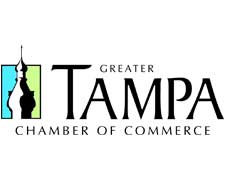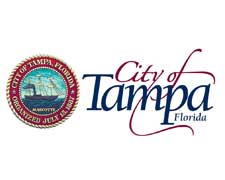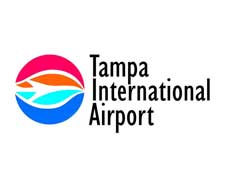Clearwater
Clearwater is a city located in Pinellas County, Florida, United States, nearly due west of Tampa and northwest of St. Petersburg. To the west of Clearwater lies the Gulf of Mexico and to the east lies Tampa Bay. As of the 2010 census, the city had a population of 107,685.[4] It is the county seat of Pinellas County. Clearwater is the smallest of the three principal cities in the Tampa-St. Petersburg-Clearwater metropolitan area, most commonly referred to as the Tampa Bay Area.
Contents
Present-day Clearwater was originally the home of the Tocobaga people. Around 1835, the United States Army began construction of Fort Harrison, named after William Henry Harrison, as an outpost during the Seminole Wars. The fort was located on a bluff overlooking Clearwater Harbor, which later became part of an early 20th century residential development called Harbor Oaks. University of South Florida archaeologists excavated the site in 1962 after Mark Wyllie discovered an under ground ammunition bunker while planting a tree in his yard.
The area’s population grew after the Federal Armed Occupation Act of 1842 offered 160 acres (0.65 km2) to anyone who would bear arms and cultivate the land. Early settlers included the Stevens, Stevenson and McMullen families, who claimed and farmed large tracts of land. Prior to 1906, the area was known as Clear Water Harbor. The name “Clear Water” is thought to have come from a fresh water spring flowing from near where the City Hall building is located today. There were many other freshwater springs that dotted the bluff, many in the bay or harbor itself.
Originally part of Hillsborough County, the first road joining Clearwater and Tampa was built in 1849, which dramatically reduced the prior day-long commute between the cities.
During the American Civil War, Union gunboats repeatedly raided the city’s supplies, as most of the able-bodied men were away fighting for the Confederate Army. The town began developing in the late nineteenth century, prompted by Peter Demens’ completion of the first passenger railroad line into the city in 1888. Clearwater was incorporated in 1891, with James E. Crane becoming the first mayor. The area’s popularity as a vacation destination grew after railroad magnate Henry B. Plant built a sprawling Victorian resort hotel named Belleview Biltmore just south of Clearwater in 1897.
Pinellas County Courthouse in Clearwater
By the early 1900s, Clearwater’s population had grown to around 400, ballooning to nearly 1,000 in the winter. Clearwater’s oldest existing newspaper, the Clearwater Sun, was first published on March 14, 1914. Clearwater was reincorporated, this time as a city, on May 27, 1915, and was designated the county seat for Pinellas County, which broke from Hillsborough County in 1912. In 1915, a bridge was built across Clearwater Harbor, joining the city with Clearwater Beach to the west. Clearwater Beach, although located on a separate barrier island, belongs to the city of Clearwater and fronts the Gulf of Mexico. A new, much higher bridge now arcs over the bay, replacing the former drawbridge; the connecting road is part of Florida State Road 60 and is called Clearwater Memorial Causeway.
During World War II, Clearwater became a major training base for US troops destined for Europe and the Pacific. Virtually every hotel in the area, including the Belleview Biltmore and the Fort Harrison Hotel, was used as a barracks for new recruits. Vehicle traffic was regularly stopped for companies of soldiers marching through downtown, and nighttime blackouts to confuse potential enemy bombers were common practice. The remote and isolated Dan’s Island, now the highrise-dominated Sand Key, was used as a target by U.S. Army Air Corps fighter-bombers for strafing and bombing practice.





